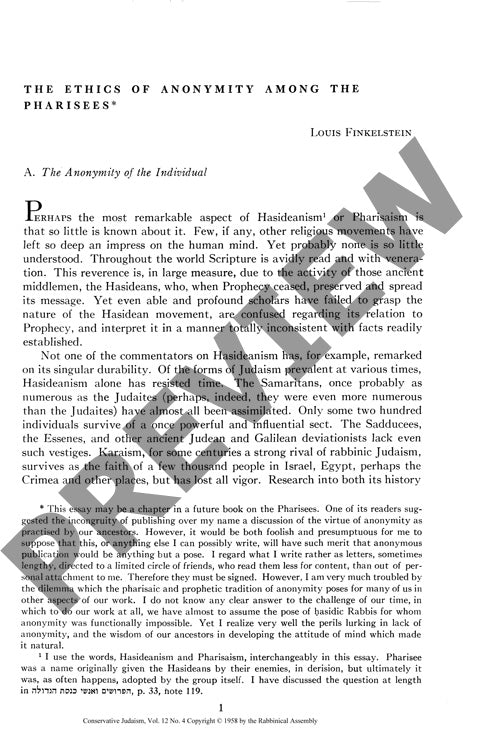The Ethics of Anonymity Among the Pharis
Couldn't load pickup availability
Among ancient religious movements, the Pharisees made a radical choice: they deliberately erased their names from history in service of a higher ethical principle. Their systematic practice of anonymity, extending from the prophetic tradition through the Great Synagogue and early rabbinic literature, reflected not humility alone but a profound theological stance privileging divine authority over human fame. Through analysis of biblical, Talmudic and historical sources, including naming patterns, pseudonymous works, and institutional practices from Ezra through the Talmudic period, a clear pattern emerges - most foundational religious texts, prayers, and legal compilations remained deliberately unsigned, with attribution occurring only when needed for pedagogical purposes or to legitimize the movement through figures like Simeon the Just. While this practice underwent modification after 70 C.E. to prevent confusion between competing traditions, the underlying ideal of transcendent service persisted throughout the Talmudic era. The Pharisees' collective choice of anonymity paradoxically strengthened rather than diminished their impact, enabling unprecedented cooperation and creativity among religious leaders. This distinctive approach helps explain the remarkable durability and influence of Pharisaic Judaism compared to other contemporary movements that emphasized individual reputation but ultimately vanished from historical record.

More Information
-
Physical Description
-
Publication Information
Published 1958
ISBN
-
Publication Credits
Louis Finkelstein

